ヴァージニア工科大学で起きた銃乱射事件で立場が悪くなった韓国人。こう言っては何ですが、今回の安倍首相訪米を政治的に大いに利用して立場を回復させようとしている感があります。あくまで「自分たちは被害者」であると主張することで。
**********
ワシントンポスト紙に「慰安婦」全面広告 韓国系団体 (産経新聞)
米紙ワシントン・ポストは26日、慰安婦問題に関して下院対日決議案の採択を求める「慰安婦問題ワシントン連合」(徐玉子会長)など在米韓国系団体の全面広告を掲載した。「慰安婦の真実」と題した広告は、慰安婦問題と無関係の写真も織り交ぜ、「日本はこの犯罪に全面的な責任を取ったことは一度もない」と非難している。同日の掲載は、安倍晋三首相の訪米を狙ったもので、関連団体は安倍首相の宿舎周辺での抗議集会を予定している。(ワシントン 山本秀也)
(2007/04/27 03:36)
**********
こういう動きに当然のことながら、The New York Timesはノリミツ・オーニシ記者が援護射撃を行っています。
**********
April 26, 2007
Japan Premier to Visit a Politically Changed Washington
By NORIMITSU ONISHI
TOKYO, April 25 — Prime Minister Shinzo Abe will have a hard act to follow when he arrives in Washington on Thursday for his first trip to the United States as Japan’s leader.
President Bush took his predecessor, Junichiro Koizumi, on a highprofile visit to Graceland in Memphis, where Mr. Koizumi put on Elvis’s shades and played air guitar while mugging for the camera. Mr. Abe is expected to make a low-key visit, staying just one night in Washington and limiting his exposure to potentially uncomfortable questions about his views on Japan’s conduct during World War II.
In his seven months in office Mr. Abe has reassured Washington by smoothing relations with China, which grew dangerously tense under Mr. Koizumi. But relations between the United States and Japan have become slightly strained because of differences over two issues intimately tied to Mr. Abe’s nationalist ideology: North Korea and his revisionist views of history.
American officials recently publicly rebuked Mr. Abe for denying that the Japanese military had coerced women into sex slavery during World War II. While the United States still wants Japan to become more assertive in Asia, even conservative voices have recently urged caution over being too closely tied to Japan’s nationalist leaders.
“The U.S. is going blindly into an alliance with these people without appreciating the fact that their friends in Japan aren’t on the right side of history, as with the ‘comfort women’ issue,” the American political philosopher Francis Fukuyama said in an interview. “If you end up polarizing Asia on these history issues, nobody will be on the side of Japan.”
Mr. Fukuyama said he supported the Bush administration’s overall strategy of encouraging Japan to be more assertive diplomatically and strengthening the two countries’ military alliance.
But he said Japan should move cautiously in revising its pacifist Constitution — a goal that Mr. Abe has defined as his most important, and Washington has supported.
“Everybody, including the Japanese themselves, says that nobody should be worried about Japan revising its Constitution,” Mr. Fukuyama said. “I think that is basically right. But the Japanese have to make their case. It’s not about letting China or Korea have a say in this matter. The Japanese need to take time in their public diplomacy to explain why they want to do this. If they do this unilaterally, the situation in Asia could get a lot worse.”
At home, Mr. Abe’s approval ratings appear to have bottomed out after falling precipitously for several months over a series of scandals and complaints of weak leadership.
But because Mr. Abe has succeeded in reasserting himself recently and because the main opposition party is in disarray, he is likely to remain head of the governing Liberal Democratic Party and prime minister after a critical election of the upper house of Parliament in July, experts said.
“His popularity was dropping because he lacked management skills and his policies didn’t have a clear direction,” said Jun Iio, a professor of government at the National Graduate Institute for Policy Studies here. “But the likelihood that his administration will stabilize is very high as long as Prime Minister Abe shows steady results.”
Before becoming prime minister, Mr. Abe made a name for himself inside Parliament by spearheading conservative issues like excising references to Japan’s wartime abuses from school textbooks. Among voters, he drew his popularity by championing the cause of more than a dozen Japanese citizens abducted by North Korea in the 1970s.
As prime minister he has been trying to balance the demands of his conservative base with those of his new job, often by finessing difficult issues. A onetime regular visitor to the Yasukuni Shrine, the memorial for Japan’s fallen soldiers, including war criminals, Mr. Abe says he will neither confirm nor deny whether he has visited as prime minister. That has placated China for now.
“All the expectations of Abe pointed to somebody who was not only going to continue Mr. Koizumi’s foreign policy, but harden what were already difficult relations with Japan’s neighbors,” said Richard J. Samuels, a Japan expert at the Massachusetts Institute of Technology. “But he surprised everyone” by reaching out to China.
It is on North Korea that differences have widened between Washington and Tokyo. Mr. Abe has long said that Japan will not take part in any nuclear agreement, including the accord reached on Feb. 13, unless the North returns Japanese abductees. The North says it has returned all surviving Japanese.
His tough stance, which dovetailed with the Bush administration’s previous policy toward the North Koreans, has remained unchanged despite Washington’s new efforts to strike a deal with the North.
“Abe and his allies are clearly in dismay that the neocon rug was pulled from under them last fall,” said Gerald L. Curtis, a Columbia University expert on Japanese politics who is now in Japan, referring to the Republican loss of Congress and the resulting decline in influence of neoconservatives. “Now he has to find a way to get on board this nuclear agreement.”
That will be difficult, Mr. Curtis said, because the abduction issue has become tied to Mr. Abe and Japanese nationalism. “So if it seems like he’s selling the abductees down the river, he’s dead,” Mr. Curtis said.
Before the change in policy toward North Korea, Mr. Bush made symbolic gestures supporting the abductees, including inviting a relative to the White House. In a recent visit to Japan, Vice President Dick Cheney met relatives. But according to the news media here, Mr. Cheney also asked Mr. Abe what he would consider progress on the abduction issue, suggesting that Washington wanted Japan to support the nuclear deal.
“Americans have paid lip service to the abductions, but they’re not going to let it get in the way of realizing a nuclear deal,” Mr. Samuels said. “Japan is marginalized on this issue.”
On Monday, perhaps anticipating that he would be asked the same question in Washington, Mr. Abe struck a tough stance. “Whether there’s progress or not on the abduction issue, that’s something we will decide,” Mr. Abe told reporters.
On the domestic front, Mr. Abe has pushed to extract Japan from what he calls its “postwar regime.” He has revised the basic law of education by emphasizing patriotism and has moved to change the Constitution.
His ideological allies, whom Mr. Abe appointed to top posts in government and the governing party, have pushed even harder for long-cherished nationalist goals. One was to rescind a 1993 declaration acknowledging that the Japanese military had coerced women into sex slavery during the war. Nationalists here have long argued that the so-called comfort women were voluntary prostitutes, despite overwhelming evidence to the contrary.
In a nod to his base, Mr. Abe said there was no evidence that the military had coerced the women, but added that the 1993 declaration would remain in effect. After his comments caused anger in Asia and the United States, Mr. Abe apologized.
But despite many verbal contortions, he has not taken back the point most important to his political base, his denial of coercion by the military.
“He made a good gesture in the beginning by visiting Korea and China, but then he made a completely unnecessary comment about the comfort women,” said Ahn Yinhay, a Northeast Asia expert at Korea University. “Because of his basic stance, his distortion of history, relations between Korea and Japan will likely remain strained. I don’t see any dramatic improvement in the future.”
**********
オーニシ記者が、一番言いたかったのは最後の段落でしょう。訳してみましょう。
「安倍首相は韓国や中国を訪れることで最初はうまく立ち回っていたが、慰安婦について完全に不必要な発言をしてしまった」と高麗大学の北東アジアの専門家であるAhn Yinhayは言っている。「彼の基本的スタンス、すなわち、歴史の歪曲がある以上、韓国と日本の関係は迷走したままになりそうだ。将来において劇的な改善があるとは思えない」
つまりは、安倍首相のせいで韓国は大いに傷つけられたということをこれでもかこれでもかと訴えているわけです。こうすることでアメリカでの失地回復がすぐに得られるとは思いませんが、やるだけのことはやるわけです。
ですが、こうした主張は第一次史料をきちんと精査したうえでの発言ではありません。最近の安倍首相の弱気な発言もこうした韓国やアメリカの強硬な意見に対する外交上配慮となってしまっています。
いつになったら、正しく日本のことが理解されるのか。政治家・外交官にはがんばってもらわねばなりません。もちろん、ジャーナリストの皆さんにも。
**********
ワシントンポスト紙に「慰安婦」全面広告 韓国系団体 (産経新聞)
米紙ワシントン・ポストは26日、慰安婦問題に関して下院対日決議案の採択を求める「慰安婦問題ワシントン連合」(徐玉子会長)など在米韓国系団体の全面広告を掲載した。「慰安婦の真実」と題した広告は、慰安婦問題と無関係の写真も織り交ぜ、「日本はこの犯罪に全面的な責任を取ったことは一度もない」と非難している。同日の掲載は、安倍晋三首相の訪米を狙ったもので、関連団体は安倍首相の宿舎周辺での抗議集会を予定している。(ワシントン 山本秀也)
(2007/04/27 03:36)
**********
こういう動きに当然のことながら、The New York Timesはノリミツ・オーニシ記者が援護射撃を行っています。
**********
April 26, 2007
Japan Premier to Visit a Politically Changed Washington
By NORIMITSU ONISHI
TOKYO, April 25 — Prime Minister Shinzo Abe will have a hard act to follow when he arrives in Washington on Thursday for his first trip to the United States as Japan’s leader.
President Bush took his predecessor, Junichiro Koizumi, on a highprofile visit to Graceland in Memphis, where Mr. Koizumi put on Elvis’s shades and played air guitar while mugging for the camera. Mr. Abe is expected to make a low-key visit, staying just one night in Washington and limiting his exposure to potentially uncomfortable questions about his views on Japan’s conduct during World War II.
In his seven months in office Mr. Abe has reassured Washington by smoothing relations with China, which grew dangerously tense under Mr. Koizumi. But relations between the United States and Japan have become slightly strained because of differences over two issues intimately tied to Mr. Abe’s nationalist ideology: North Korea and his revisionist views of history.
American officials recently publicly rebuked Mr. Abe for denying that the Japanese military had coerced women into sex slavery during World War II. While the United States still wants Japan to become more assertive in Asia, even conservative voices have recently urged caution over being too closely tied to Japan’s nationalist leaders.
“The U.S. is going blindly into an alliance with these people without appreciating the fact that their friends in Japan aren’t on the right side of history, as with the ‘comfort women’ issue,” the American political philosopher Francis Fukuyama said in an interview. “If you end up polarizing Asia on these history issues, nobody will be on the side of Japan.”
Mr. Fukuyama said he supported the Bush administration’s overall strategy of encouraging Japan to be more assertive diplomatically and strengthening the two countries’ military alliance.
But he said Japan should move cautiously in revising its pacifist Constitution — a goal that Mr. Abe has defined as his most important, and Washington has supported.
“Everybody, including the Japanese themselves, says that nobody should be worried about Japan revising its Constitution,” Mr. Fukuyama said. “I think that is basically right. But the Japanese have to make their case. It’s not about letting China or Korea have a say in this matter. The Japanese need to take time in their public diplomacy to explain why they want to do this. If they do this unilaterally, the situation in Asia could get a lot worse.”
At home, Mr. Abe’s approval ratings appear to have bottomed out after falling precipitously for several months over a series of scandals and complaints of weak leadership.
But because Mr. Abe has succeeded in reasserting himself recently and because the main opposition party is in disarray, he is likely to remain head of the governing Liberal Democratic Party and prime minister after a critical election of the upper house of Parliament in July, experts said.
“His popularity was dropping because he lacked management skills and his policies didn’t have a clear direction,” said Jun Iio, a professor of government at the National Graduate Institute for Policy Studies here. “But the likelihood that his administration will stabilize is very high as long as Prime Minister Abe shows steady results.”
Before becoming prime minister, Mr. Abe made a name for himself inside Parliament by spearheading conservative issues like excising references to Japan’s wartime abuses from school textbooks. Among voters, he drew his popularity by championing the cause of more than a dozen Japanese citizens abducted by North Korea in the 1970s.
As prime minister he has been trying to balance the demands of his conservative base with those of his new job, often by finessing difficult issues. A onetime regular visitor to the Yasukuni Shrine, the memorial for Japan’s fallen soldiers, including war criminals, Mr. Abe says he will neither confirm nor deny whether he has visited as prime minister. That has placated China for now.
“All the expectations of Abe pointed to somebody who was not only going to continue Mr. Koizumi’s foreign policy, but harden what were already difficult relations with Japan’s neighbors,” said Richard J. Samuels, a Japan expert at the Massachusetts Institute of Technology. “But he surprised everyone” by reaching out to China.
It is on North Korea that differences have widened between Washington and Tokyo. Mr. Abe has long said that Japan will not take part in any nuclear agreement, including the accord reached on Feb. 13, unless the North returns Japanese abductees. The North says it has returned all surviving Japanese.
His tough stance, which dovetailed with the Bush administration’s previous policy toward the North Koreans, has remained unchanged despite Washington’s new efforts to strike a deal with the North.
“Abe and his allies are clearly in dismay that the neocon rug was pulled from under them last fall,” said Gerald L. Curtis, a Columbia University expert on Japanese politics who is now in Japan, referring to the Republican loss of Congress and the resulting decline in influence of neoconservatives. “Now he has to find a way to get on board this nuclear agreement.”
That will be difficult, Mr. Curtis said, because the abduction issue has become tied to Mr. Abe and Japanese nationalism. “So if it seems like he’s selling the abductees down the river, he’s dead,” Mr. Curtis said.
Before the change in policy toward North Korea, Mr. Bush made symbolic gestures supporting the abductees, including inviting a relative to the White House. In a recent visit to Japan, Vice President Dick Cheney met relatives. But according to the news media here, Mr. Cheney also asked Mr. Abe what he would consider progress on the abduction issue, suggesting that Washington wanted Japan to support the nuclear deal.
“Americans have paid lip service to the abductions, but they’re not going to let it get in the way of realizing a nuclear deal,” Mr. Samuels said. “Japan is marginalized on this issue.”
On Monday, perhaps anticipating that he would be asked the same question in Washington, Mr. Abe struck a tough stance. “Whether there’s progress or not on the abduction issue, that’s something we will decide,” Mr. Abe told reporters.
On the domestic front, Mr. Abe has pushed to extract Japan from what he calls its “postwar regime.” He has revised the basic law of education by emphasizing patriotism and has moved to change the Constitution.
His ideological allies, whom Mr. Abe appointed to top posts in government and the governing party, have pushed even harder for long-cherished nationalist goals. One was to rescind a 1993 declaration acknowledging that the Japanese military had coerced women into sex slavery during the war. Nationalists here have long argued that the so-called comfort women were voluntary prostitutes, despite overwhelming evidence to the contrary.
In a nod to his base, Mr. Abe said there was no evidence that the military had coerced the women, but added that the 1993 declaration would remain in effect. After his comments caused anger in Asia and the United States, Mr. Abe apologized.
But despite many verbal contortions, he has not taken back the point most important to his political base, his denial of coercion by the military.
“He made a good gesture in the beginning by visiting Korea and China, but then he made a completely unnecessary comment about the comfort women,” said Ahn Yinhay, a Northeast Asia expert at Korea University. “Because of his basic stance, his distortion of history, relations between Korea and Japan will likely remain strained. I don’t see any dramatic improvement in the future.”
**********
オーニシ記者が、一番言いたかったのは最後の段落でしょう。訳してみましょう。
「安倍首相は韓国や中国を訪れることで最初はうまく立ち回っていたが、慰安婦について完全に不必要な発言をしてしまった」と高麗大学の北東アジアの専門家であるAhn Yinhayは言っている。「彼の基本的スタンス、すなわち、歴史の歪曲がある以上、韓国と日本の関係は迷走したままになりそうだ。将来において劇的な改善があるとは思えない」
つまりは、安倍首相のせいで韓国は大いに傷つけられたということをこれでもかこれでもかと訴えているわけです。こうすることでアメリカでの失地回復がすぐに得られるとは思いませんが、やるだけのことはやるわけです。
ですが、こうした主張は第一次史料をきちんと精査したうえでの発言ではありません。最近の安倍首相の弱気な発言もこうした韓国やアメリカの強硬な意見に対する外交上配慮となってしまっています。
いつになったら、正しく日本のことが理解されるのか。政治家・外交官にはがんばってもらわねばなりません。もちろん、ジャーナリストの皆さんにも。











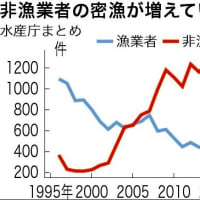

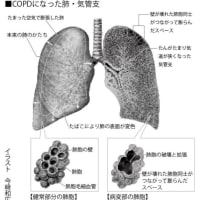
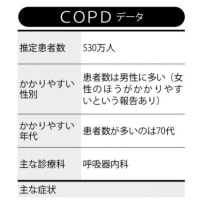
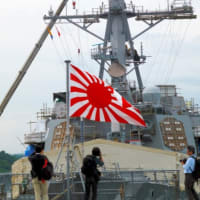



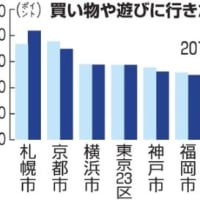





※コメント投稿者のブログIDはブログ作成者のみに通知されます